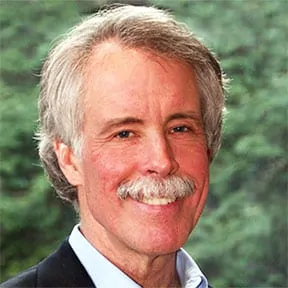

Hear from SCS Engineers experts at the SWANA Western Regional Symposium on May 20 – 23, at the Palm Springs Hilton Resort in Palm Springs, CA . SCS is also is a sponsor of the symposium.
The symposium is the premier professional meeting for solid waste, recycling, composting, and organics management professionals. The program is slated to cover dozens of topics ranging from Circular Economy, ZeroWaste, Recycling Markets, Organics Policies and Programs, Infrastructure, SB 1383, Advanced Technology, Facilities (Landfills, Transfer Stations, Processing Facilities) and more. Attendees will have the opportunity to learn, connect and engage within the industry.
Numerous SCS Engineers experts will be on hand to discuss your solid waste management challenges, and several are presenting at the symposium, including:
Click here for schedule, registration, and other conference details. See you in the desert!
The Long Beach Business Journal published an article in February about the role of engineers in infrastructure design and investment. With discussion of an immense $1 trillion outlay at the federal level in the news, the LBBJ took a look at the roles engineers play in every aspect of infrastructure development.
President and CEO, Jim Walsh discusses the purpose SCS Engineers plays as an environmental consultant and contractor on infrastructure projects ensuring they meet environmental needs, as well as economic ones.
By Bruce J. Clark, SCS Engineers
In 2015, the City of Miami Beach Public Works Department took the initiative to raise about 4,200 feet of asphalt streets. It’s also implementing a master plan developed in 2014 to protect the homes and livelihoods of 88,000 residents and $50 million in taxes.
Several U.S. cities are exploring how global climate trends could affect local infrastructure, but Miami Beach is the nation’s first city to face the reality of rising sea levels. Consequently, the city is providing others with unique insight. In the words of City Engineer Bruce Mowry, “There’s no playbook for these solutions.”
Infrastructure Week (May 16–23) is a national week of events, media coverage, education, and advocacy efforts to bring the state of the nation’s infrastructure to the attention of all Americans. Forester Media, the publisher of MSW Management magazine, is an Infrastructure Week affiliate. John Trotti, MSW Managing Editor recently surveyed Jim Walsh, P.E., BCEE, President and CEO of SCS Engineers and long-time friend of the magazine on the topic. Jim is first out of the blocks to answer the four questions John asked of respondents from MSW and Forester’s other publications, Business Energy, Erosion Control, Grading & Excavation Contractor, Stormwater, and Water Efficiency.
MSW Management (MSW): Which infrastructure projects should be given priority? Roads and bridges? Dams and levees? Water supply? Electrical grid? Waste management?
James Walsh (JW): Typically public safety, cost, and benefit determine the priority for infrastructure projects, and different political jurisdictions have different priorities. Where highways and bridges are new but waste management facilities are old, the priority might be waste management facilities, and vice-versa. Some types of infrastructure are more amenable to private sector solutions, which can allow the government to focus on other types of infrastructure. The trend in waste management, for example, has been to rely on the private sector in the last decade
Each segment faces difficult challenges; the most significant is funding. Waste management does not necessarily have priority over other projects, but has progressed by regionally identifying the infrastructure necessary. Thus, each region avoids the pitfalls of competing for funding with other regions and other projects.
SCS Engineers focuses on waste management, but there are opportunities to interact with other segments in sustainable ways. For instance, we have energy clients who supply coal ash to specialty cement companies who use it to make “green” cements that last longer in applications such as road construction. We design and construct facilities that take the byproduct gases from the decomposition in landfills to generate electricity reducing their dependence on fossil fuels, or directly use the gas for energy to power wastewater plants simultaneously cleaning and conserving water. We find ways to safely redevelop contaminated property supported by existing infrastructure, thus reducing the need to build new infrastructure.
In short, we work toward helping clients find sustainable solutions to infrastructure projects.
MSW: Is there a solution to long-term infrastructure funding?
JW: With respect to the waste management infrastructure, waste systems require significant capital investment in land, equipment, facilities, and infrastructure. While many governments have decided to rely on private industry instead of financing new governmental facilities, others have become much more sophisticated in adopting private sector approaches to financing. Pro-Forma Economic Life-Cycle Models can assist governmental entities to identify the critical variables that can impact the success of an infrastructure project. Moreover, economic models evaluate how various components of a waste system and variable assumptions integrate together into a sensible approach. Pro Forma Economic Models allow for a careful analysis of the life-cycle costs and potential revenue sources and identify factors that will influence the waste system costs and demonstrate how to adequately and equitably fund the system. These Models provide different scenarios and eliminate options that are not financially feasible or do not fit a region’s short- and long-term needs or priorities. Sensitivity analysis can be conducted to understand better the impact these variables have on capital costs, operating expense, and the overall system economics. By assessing the economic and regional benefits first, we can focus on designing and building infrastructure solutions that are safer, longer lasting, and affordable. Other benefits include adjusting the Model if there is a major change in the commodity market, such as plastics’ recycling is experiencing now and when considering the use of new technologies.
Every industry segment and every region have a different blend of socio-political conditions, geography, and monetary resources—we assess and design to their particular needs. Adopting new waste management technologies, such as anaerobic digestion or waste diversion, as part of an overall waste management program can be integrated into the Model to study how, and if, they sensibly integrate within the existing program. New technologies are typically more expensive than mature technologies such as recycling facilities and landfills, but that condition alone is not why they are considered valuable to a region. The framework considers elements key to integrating anaerobic digestion for example into a long-term program. Capital investment, a significant centralized source of high-quality organic waste, power costs and economic utility incentives, limited land suitable for composting, lack of conventional waste-to-energy facilities, or a ban on organics disposal in landfills are some of the considerations.
Many states are developing organics diversion initiatives, discouraging or banning organics from landfills; they will want to develop separate capacity for diversion within their overall program to build a sustainable plan for the long-term. In some states there is plenty of environmentally sound landfill capacity, recycling facilities have adequate capacity, and the socio-political climate has different ideals. What works in Iowa might not be suitable for California.
MSW: What kind of harm is the current state of our infrastructure doing to the economy and the community?
JW: Every four years, the American Society of Civil Engineers releases a “Report Card for America’s Infrastructure” depicting our nation’s infrastructure condition and performance. In a traditional school report card format, individual infrastructure segments are assigned letter grades—solid waste has the highest grade of B- in the most recent report published in 2013. The waste management infrastructure in the United States is robust, diverse, and significantly supports our economy and communities by providing safe and cost-effective management of the materials that we discard on a daily basis.
MSW: What can various government entities—from local to Federal—do to attract private sector support and investment?
JW: In the United States, private solid waste facilities manage 75% of the municipal wastestream. The waste management industry has many examples of public/private partnerships and significant investment by the private sector. Just look at firms like Waste Management Inc., Republic Services Inc., Waste Industries, Waste Connections, WCA Waste Corporation, Covanta, and Wheelabrator, which own and operate numerous landfills, compost facilities, waste-to-energy facilities, transfer stations, processing facilities, alternative technologies, and hauling companies. These facilities require significant private investment. Allowing private industry to participate in the management of waste management infrastructure brings needed fiscal discipline and accountability to the overall waste system infrastructure.
The private sector is attracted to markets that are predictable and that provide an appropriate return on investment. Jurisdictions with a reputation for making sudden unpredicted changes in regulations that adversely affect the return on investment will find it difficult or impossible to attract private sector support.
The waste management sector and SCS Engineers have seen our share of magic technologies that are literally too-good-to-be-true, yet somehow attract governmental support both financial and otherwise. It is fine for government agencies to provide grant support for research related to promising new technologies, but adopting an unproven technology as the sole means of waste management is inviting a public health crisis. Private sector investment is not attracted to jurisdictions that have unrealistic expectations.
About James Walsh, PE, BCEE, President and CEO of SCS Engineers

Jim has worked at the forefront of sustainable waste management for more than 40 years. He has authored numerous publications, technical support documents, presentations for the USEPA, US DOE, the Gas Research Institute while serving the Solid Waste Association of North America (SWANA), National Waste and Recycling Association (NWRA), and the Environmental Research and Education Foundation (EREF), among others.
Environmental assessments are part of the City’s environmental management plan to protect the health and welfare of citizens when implementing infrastructure projects.

MIAMI, FL. – SCS Engineers is working with the City of Miami by providing professional environmental engineering services on public infrastructure projects. The SCS project team, led by Eduardo Smith, Vice President at SCS Engineers, and a Registered Professional Engineer in Florida.
SCS Engineers provides sustainable environmental consulting and engineering services to the City of Miami including design, construction documents, construction administration and various reports for environmental engineering related projects. SCS Engineers is one of the leading environmental consulting and construction firms in the nation. SCS has extensive experience in all facets of environmental management including air and water regulatory compliance and permitting in the state of Florida.
“The City of Miami continues to deliver significant project accomplishments of the hundreds of projects under development in the Capital Improvement Plan,” said Eduardo Smith. “SCS professionals have a positive history working with the City, its citizens, and Florida regulatory agencies on public and private projects because we help the State meet tougher environmental regulatory policy standards.”